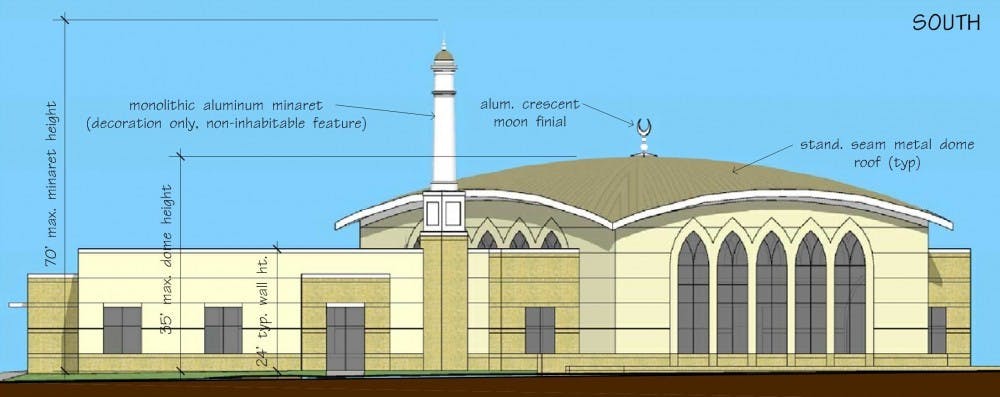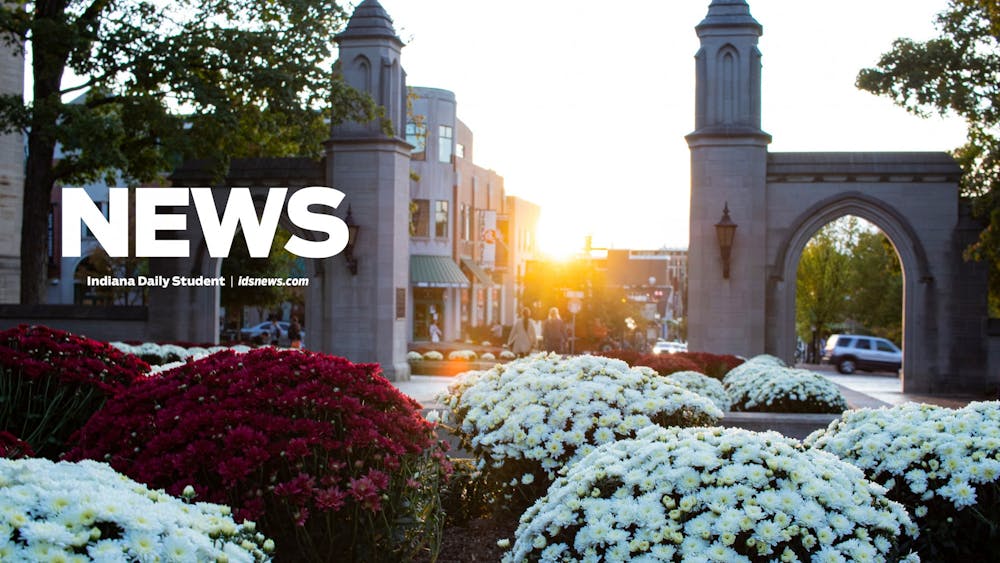Discussion and public comment about Carmel, Indiana's proposed first mosque lasted more than five hours Monday night before the city’s Board of Zoning Appeals. However, the few minutes between a motion to vote on the proposal and the results may have been the longest part of the night.
Ashhar Madni, vice president of the board of Al Salam Foundation, the group hoping to build the mosque, sat nervously near the front of the auditorium, as the zoning board wrote down their votes.
Finally, five or so minutes after the motion to vote, the results were announced: three in approval, two against. Carmel would get its first mosque, just barely.
Controversy about the mosque started because its proposed lot is zoned for residential use and needed special approval to be used for a house of worship. Roughly an equal number of people had spoken for and against the mosque Monday, and no one knew how the board would vote.
“It was worth waiting that many hours,” Madni said.
This was the second time the mosque proposal took center stage at a zoning board meeting.
Last month, so many people came to speak about the mosque, they couldn’t fit into a meeting room in the Monon Community Center, and the board was forced to continue public comment this week at Carmel’s 1,600-seat Palladium concert hall.
About 700 people attended, according to the Indianapolis Star, and about 175 people spoke.
When plans for the mosque at 141st Street and Shelborne Road were announced, nearby residents became concerned about increased light, traffic and noise, as well as potentially decreased property values.
Many opponents emphasized during public comments last month and this month that their opposition had nothing to do with Islam but simply the location of the mosque in a residential area. A small number of comments did express anti-Islamic sentiment.
Al Salam Foundation met with community members several times leading up to Monday’s vote, and the group made changes to the mosque plans to address concerns.
Recent adjustments included reducing the overall size of the building, lowering light pole heights and relocating the dumpster toward the center of the site.
Current plans for the building include a 13,000-square-foot first floor, a basement and 102 parking spaces, all on a 5-acre plot.
“Our intent has always been to work with neighbors on reasonable compromises,” said Eyas Raddad, a congregant and volunteer with Al Salam Foundation. “Nothing short of us not building there would’ve satisfied some neighbors.”
Raddad said it’s clear the mosque received more opposition than other houses of worship built in residential areas in Carmel, but he thinks this came from fear of the unknown. Over time he said he thinks these fears will dissipate.
Until then, Raddad said the group will engage in dialogue with their neighbors as long as the neighbors want.
“We want to be good neighbors because of what our faith asks us to do,” Raddad said. “We will be good neighbors even if our neighbors do not accept us.”
Raddad said it was encouraging to see many members of the Carmel community turn out to support the mosque’s construction.
Madni said it was moving for him to hear personal accounts from members of the foundation’s community, especially the young members.
“They see their future in it, and they have lots of hope,” Madni said. “The feeling of warmth you get when you see people in your community speak from the heart was a once in a lifetime experience.”
IU student Arisa Hussain grew up in Carmel and her mother is involved with the Al Salam Foundation board. She couldn’t make it to the meeting Monday, but her immediate and extended family went and sent her text updates all night.
Hussain said it is unsettling to think of potential backlash against the mosque, given all the opposition, but also sees it as a chance to do outreach with the broader community.
“It’s an opportunity to make people realize it’s not as bad as they think,” Hussain said. “That’s always been important to our mosque — inviting our neighbors in — and making it one community whether you’re Muslim or not.”






